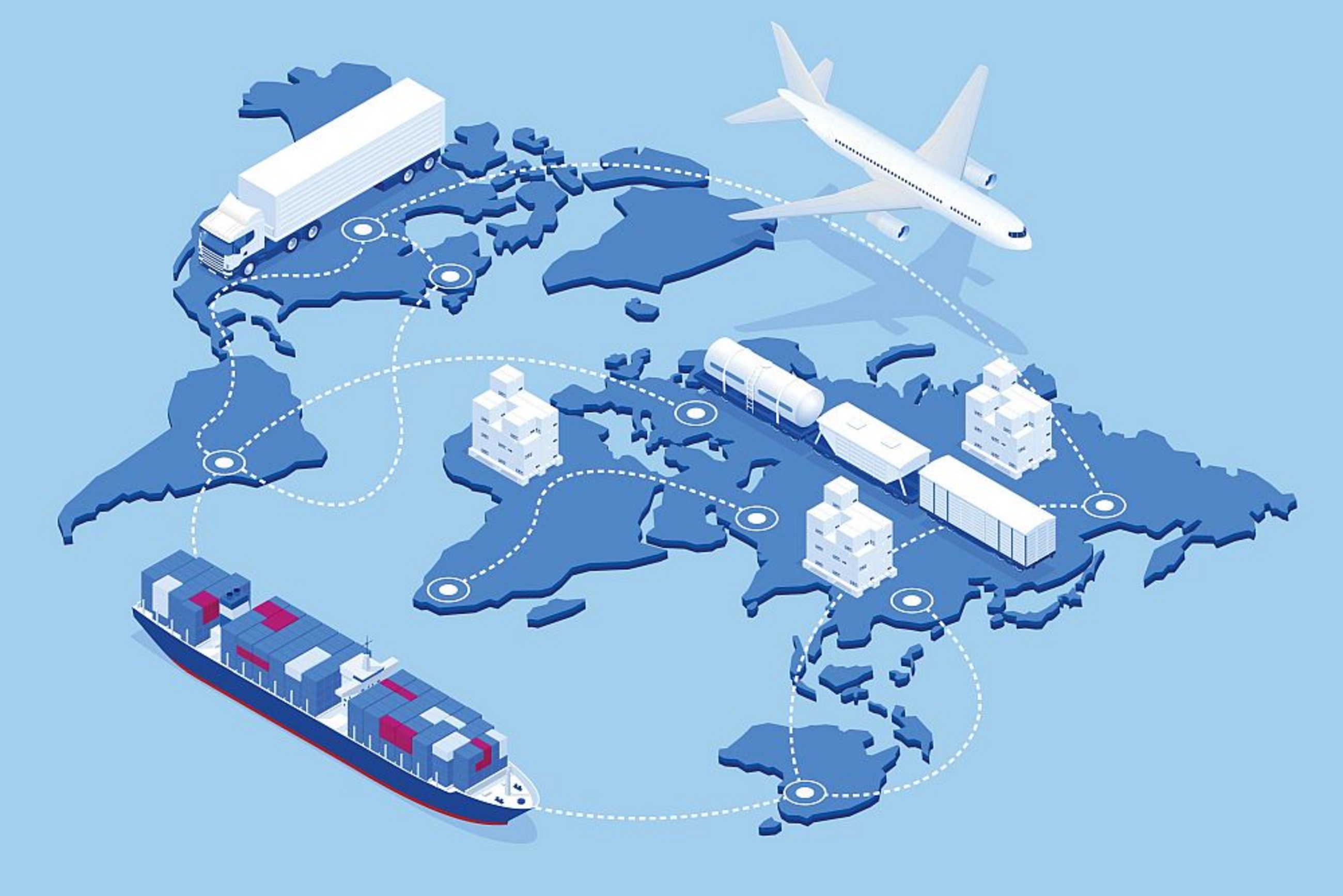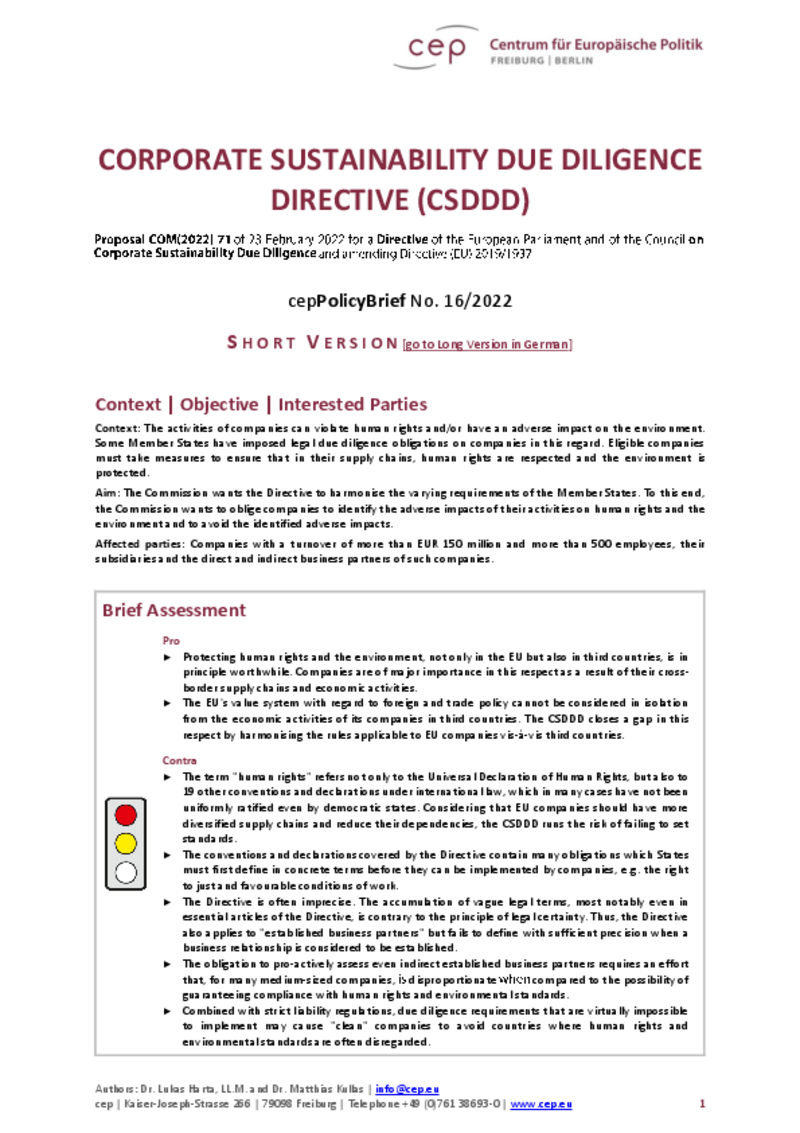
Economic & Fiscal Policy
Corporate Sustainability Due Diligence Directive (cepPolicyBrief COM(2022) 71)
cepPolicyBrief
"The intention is worthwhile. Many companies deny their responsibility for human rights and the environment. Yet they are of great importance due to cross-border supply chains," says cep lawyer Lukas Harta, who examined the planned directive with cep economist Matthias Kullas. The values advocated by the EU would have to apply to the economy as well. However, the cep researchers criticise the draft as anti-business due to numerous ambiguities.
"The EU’s definition of human rights alone is based on 19 conventions and declarations under international law, which often not even democratic states have agreed to. In this way, Brussels undermines the goal of achieving a standard-setting effect for highly diversified supply chains," explains Harta. The content of the conventions and declarations also often needs further clarification. For example, there is no uniform definition of what "just and favourable just conditions of work" are.
According to Kullas, the directive is often vague. The accumulation of vague legal terms creates confusion, not legal certainty. For example, the law is supposed to apply to "established business relations" without sufficient explanation of what is meant by "established". In addition, it would create a disproportionate administrative burden, especially for medium-sized enterprises, if they had to identify "established" business partners and guarantee compliance with human rights and environmental protection on the basis of vague definitions.
Recently, it was criticised that the German government was trying to weaken the draft law at crucial points. Above all, according to these criticisms, the so-called safe harbour rule demanded by Berlin could lead to favourable opinions and certificates and thus turn the law into a "toothless paper tiger".
Download PDF
| cepAnalyse (publ. 11.22.2022) | 204 KB | Download | |
 | |||



